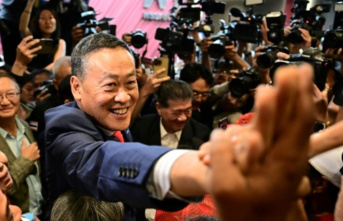The European Union was working to toughen the conditions imposed to the developers of artificial intelligence, in an attempt to because the technology to be used in an ethical manner. The European Commission, the executive arm of the EU, the latest a series of new rules applicable to "high risk sectors" such as health and transport, and suggests that the block has to update the safety laws and responsibility. This follows from the draft of a white paper on artificial intelligence that has had access to the agency Bloomberg.
The European Commission intends to present this document in mid-February, while, according to the u.s. agency, it is very likely to change in the final version. This paper is part of a broader effort by the EU to be able to compete with the united States and China in artificial intelligence, a technology that is increasingly behind all the innovations that are launched to the market. However, the european authorities want to differentiate themselves in a more ethical aspects such as, for example, the user's privacy.
MORE INFORMATION
Brussels warning on the effects of the “excessive technological dependence” of Europe, the U.S. and China: the three models of the IAThere are many voices who object, on the contrary, that the strict data protection laws such as those prevailing in the EU (in addition to the fragmentation of legal and political) could be a barrier to innovation around the AI. EU officials argue, on the contrary, that a harmonization as well as that are proposing will spur the development.
The new president of the European Commission, and Ursula von der Leyen, promised when he took the position that his team would present a new legislative approach on artificial intelligence during the first 100 days of his mandate, which began on 1 December. To this end, entrusted the task to the commissioner of Competition and head of the sector, Margrethe Vestager, to coordinate these efforts. A spokesman for the Commission in Brussels declined to comment to Bloomberg about the document, although he argued that "to maximize the benefits and address the challenges of artificial intelligence, Europe has to act as one, and define your own path, a human path. The confidence and security of the citizens of the EU will be, therefore, in the center of the strategy of the EU".
Recognition
The president of the European Commission, and Ursula von der Leyen, in the first term; and the commissioner of Competition, Margherite Verstager, during a plenary session at the European Parliament.The EU, for example, seeks to force the Member States to appoint authorities that are tasked to monitor the implementation of any rule to the future governing the use of AI, according to the document. In addition, Brussels is also considering new duties for public authorities around the deployment of facial recognition technology, as well as more detailed rules on the use of such systems in public spaces.
The white paper suggests to ban the use of face recognition, both by the administration and by private enterprise for a sufficient time until it is calibrated properly its risks. In the draft, the EU defines these tools as high-risk as "applications of artificial intelligence that can produce effects legal effects for the individual or the legal person, or pose a risk of injury, death, or damage to material significant to the individual or the legal person".
Frame of 'Metropolis', Fritz lang (1927)Obviously, the artificial intelligence is already subject to various european regulations, including the rules on fundamental rights around privacy, non-discrimination and product safety and liability laws. But these rules may have become obsolete and do not completely cover the specific risks posed by new technologies, according to the Commission in the document, reports Bloomberg.
however, monitor its citizens with artificial intelligence is not something exclusively chinese. A report of the research group of the Carnegie Endowment for International Peace, a figure in at least 75 countries that are actively using tools of AI such as facial recognition to surveillance. Spain is among those, as well as Germany, France or the United Kingdom.
Previous jobs
The EU strategy for the artificial intelligence has been based on previous work that has been coordinated by the Commission, including reports published in the last year by a committee of academics, experts and executives. The EU rules only have validity for the european territory, obviously. However, they usually have a level of bonding, the whole time that companies do not tend to be for the work of creating software that can be banned in a market of over 500 million people.
At the request of the European Union itself, the past month of April a committee of experts published guidelines for the development of artificial intelligence, based on three pillars: the legal, the ethical and the technical. In total, the document sets out seven requirements that, among other things, seek to ensure that the systems are at the service of human beings, are safe and transparent, safeguard the privacy and prevent discrimination. It is, in short, the framework required to differentiate the models who champion China and the united States, according to Zigor Aldama .
however, consultants such as McKinsey warn that the traditional gap that separates the EU from its two main competitors in the internet economy is widening with the development of artificial intelligence. “Only two of the 30 major digital companies, the 25% of the startups of IA, and the 10% of the unicorns digital are european”, they underline. And added that “if Europe were to develop the AI in proportion to their weight digital in the world, it could add 2.7 trillion euros to its richness in 2030”. A figure that could increase up to 3.6 trillion if it were to be put to the height of the united States, which has a smaller population.
Reports
One of the reports published last year described a set of seven key requirements that the systems of IA should be implemented in order to be considered reliable. These include incorporating human supervision, respect the privacy, traceability, or to avoid bias unfair decisions. Another of those documents describing the policy and investment recommendations for the EU and its member states, such as restricting the development of weapons willsuch automated and said it should consider new rules on the follow-up unjustified through facial recognition or other biometric technologies.
The CEO of Alphabet, Inc., Sundar Pichai, has planned a public appearance in Brussels next week to give a speech at a group of experts on the responsible development of IA.
Date Of Update: 17 January 2020, 23:00










